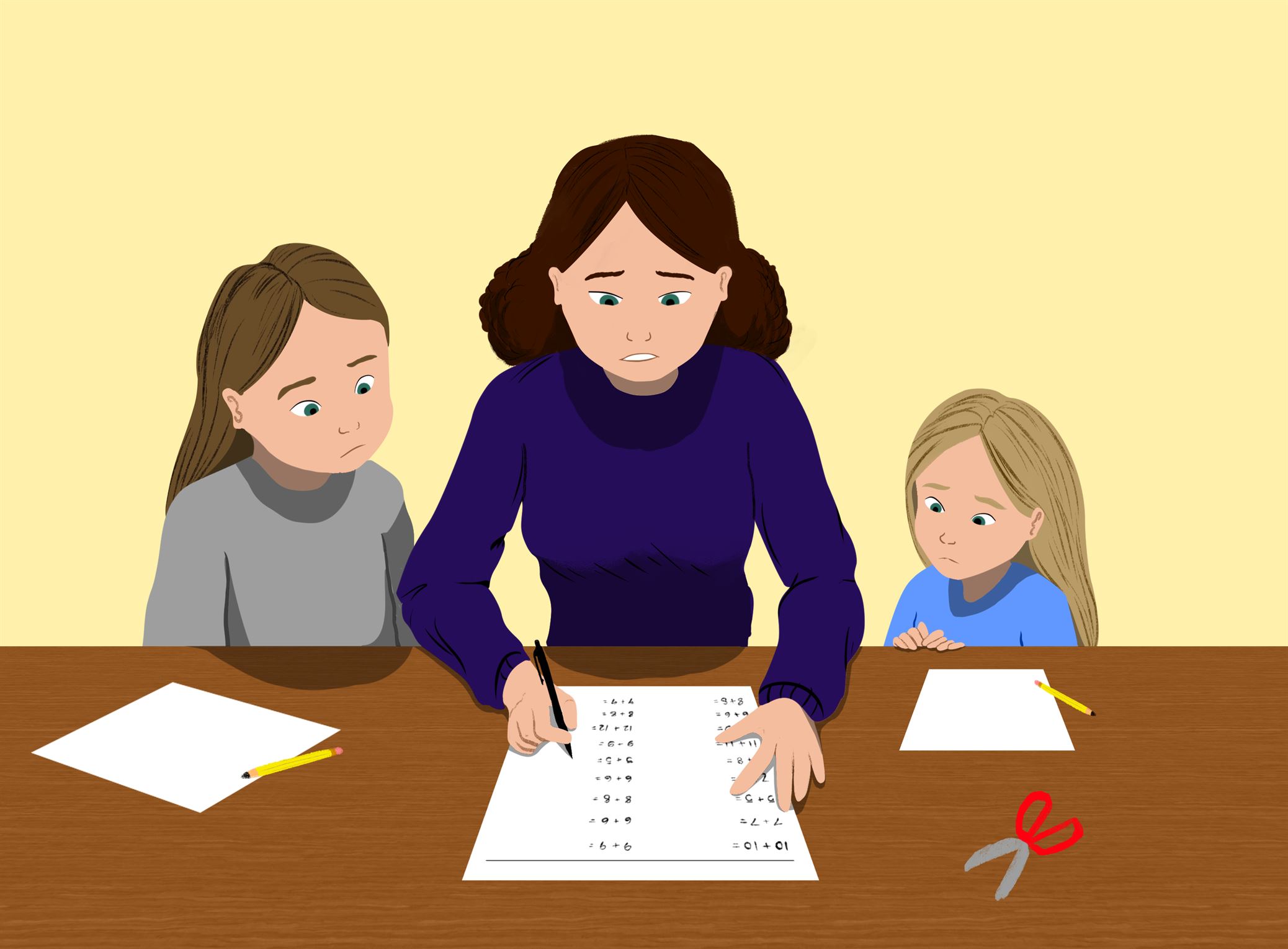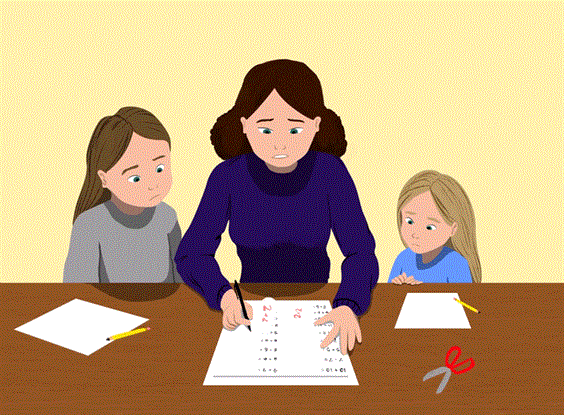College students are not the only ones with online classes. Children also had to make the transition from a face-to-face learning environment to online instruction as well. They are left to adults and older siblings who often have no experience with teaching, creating an unproductive learning environment that may do more harm than good in the long run.
The week that Montclair State University extended our spring break, I was left to teach my younger sisters. I was thrown into being a “teacher” without any kind of experience in teaching children. Like many others, I soon came to realize what massive amount of patience teachers must be equipped with to teach, as dealing with my sisters’ school work soon became unbearable.
Although this is difficult for me, I can hardly imagine how this is for my sisters. They were ripped from their classrooms and left to learn what little they could manage to understand from a computer.
Emma and Kate Pomaro, a second grader and a kindergarten student, were forced to give up their fun and engaging classrooms to a kitchen counter.
“We can’t really see our teachers cause she gives us work, but she doesn’t really explain it to us,” Emma said. “So we have to figure it out on our own.”
I have to go over each assignment with my sisters. The problems range from not understanding the instructions to not understanding the material itself. I’m not a teacher, so even though I may try my best, it’s a toss up for whether or not the information will stick.
It also appears as though the students are given pure busywork. My mom comes home with piles of worksheets for my sisters to fill out and hand in. Worksheets such as these do nothing more than have the material go in through one ear and right out the other.
“I think I’m learning just a little bit less,” Emma said. “I don’t think I’m learning as much.”
The sad part is that this is hardly the faults of the teachers. They are more than accommodating to answer any questions their students, or the adults helping them, may have. This is a new situation for them as well. Although they are doing their best to make it work, it still isn’t enough.
Elementary school entails the formative years of a child’s education. The average adult isn’t qualified to teach children to read and write. This results in frustrated parents and academically setback students.
Both Emma and Kate are missing the hands-on aspect of learning, whether it be writing on the board or reading a book together as a class.
It’s hard for teachers to keep 30 kids focused in a face-to-face classroom, let alone online. Imagine trying to keep the attention of 30 children, all coming to you through different screens, not to mention while they are at home with a million different distractions surrounding them.
Young students now have teachers with priorities other than their education. Parents are focused on their own jobs, housework, cooking, cleaning and a number of other important responsibilities.
I help my siblings while I do my own homework. It’s definitely distracting, but my family has few other options. This forces me to lose concentration on my work and do poorer than I might otherwise. My temperament is affected when I teach my siblings, as I now have the added stress of managing their work on top of my own.
I asked my sisters to provide their final thoughts on the matter and both of their responses broke my heart.
“I’m not really happy about how we can’t see our friends and learn,” Emma said.
Kate had a similar thought to her sister’s.
“I’m sad because I can’t see my friends,” Kate said.
This seems to be a miserable situation all around. It’s unfortunate for the children because most are unable to understand such things, and it is unfortunate for those adults and teenagers that must sacrifice their own work to tend to those of the younger ones.
Really all that can be done at this time is to hope for things to get better and to live and learn how we are being asked to.




